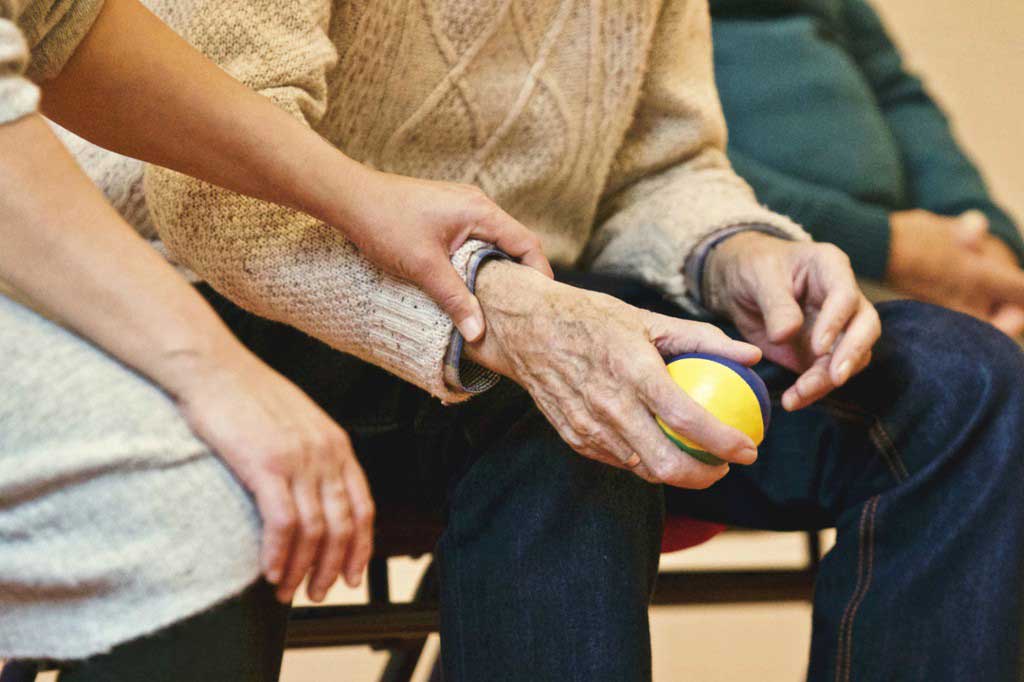Antipsychotic use in dementia
Older people
“About 145,000 people with dementia are wrongly being prescribed powerful anti-psychotic medication which causes around 1,800 deaths a year,” The Times reported.
“About 145,000 people with dementia are wrongly being prescribed powerful anti-psychotic medication which causes around 1,800 deaths a year,” The Times reported. Many newspapers have reported this finding from a government-commissioned review. The government has responded to the report and agrees with its main findings.
The report makes several recommendations, mainly that people with dementia should receive antipsychotics only when they really need them, and that reducing their use in this group should be a priority for the NHS. It suggests this can be achieved by various means including training carers and medical staff to use alternatives to antipsychotics, providing psychological therapies for people with dementia and their carers, carrying out further research into alternative treatments, and audits.
The report estimated that antipsychotic use could be safely reduced to a third of its current usage over a period of three years.
Why are antipsychotics used in dementia?
Antipsychotics are used to manage the psychological and behavioural symptoms of dementia. These include aggression, agitation, shouting and sleep disturbance. It is important to find ways to deal with these symptoms as they can cause major problems for the person with dementia and their carers.
What is the basis for the news reports?
In 2008, the government asked Professor Sube Banerjee to carry out an independent report about the use of antipsychotic medication for people with dementia in the NHS in England. Professor Banerjee is a professor of mental health and ageing at the Institute of Psychiatry, part of King’s College London.
The review was commissioned as there have been “increasing concerns over the past years about the use of these drugs in dementia”. This report has now been published, along with the government’s response.
What did the report find?
The report found that the current approach to treating the psychological and behavioural symptoms of dementia appears to be largely based on the use of antipsychotics. It also found that the evidence regarding the use of antipsychotics in people with dementia is complex, sometimes contradictory and contains gaps. Due to the gaps in the evidence, any conclusions need to be drawn cautiously.
The report concluded that, overall, the evidence suggests that antipsychotics appear to have only a limited positive effect in treating these symptoms and cause significant harm to people with dementia.
However, it also said that some people with dementia do benefit from antipsychotics and there are likely to be specific subgroups of people with dementia who benefit, such as those with severe symptoms. It said this has not yet been tested in rigorous trials.
Based on the best evidence available, Professor Banerjee estimated that:
- Each year, 180,000 people with dementia receive antipsychotics in England.
- Up to 36,000 of these people benefit to some degree from the treatment.
- Around 1,620 additional cerebrovascular adverse events (such as stroke) will result from the treatment. About half of these will be severe.
- Each year, about 1,800 additional deaths will be caused by the treatment in this frail population.
What did the report conclude?
Professor Banerjee concluded, “The current level of use of antipsychotics for people with dementia presents a significant issue in terms of quality of care, with negative impacts in patient safety, clinical effectiveness and the patient experience.”
He says that antipsychotic drugs appear to be used too frequently in dementia and that the potential benefits are likely to be outweighed by the risks. He suggests that this is a worldwide problem, but that actions can be taken to address it.
What recommendations does the review make?
The report makes 11 recommendations that aim to reduce the use of antipsychotics to a level where the benefits outweigh the risks. Professor Banerjee estimated that antipsychotic use could be reduced to a third of its current level, and that this could be done safely over 36 months.
Broadly, the report recommends that:
- People with dementia should receive antipsychotics only when they really need them.
- Reducing the use of antipsychotics in people with dementia should be a priority for the NHS.
- Care home staff are given a curriculum to develop skills in non-pharmacological treatment of behavioural disorder in dementia.
- Care homes could be assessed based on their use of antipsychotic medications and the availability of staff who are skilled in non-pharmacological management of behavioural and psychological symptoms in dementia.
- Psychological therapy resources should be made available for people with dementia and their carers.
- Further research should be carried out, including studies of non-pharmacological methods of treating behavioural problems in dementia and of alternative pharmacological treatments.
What was the government’s response?
The government welcomed the report and accepted its conclusions. It said that the level of additional deaths due to antipsychotic use in people with dementia was “totally unacceptable”.
It also agreed that “there should not be a ban on the prescribing of anti-psychotic medication to people with dementia, as there will undoubtedly be occasions when the use of drugs will be necessary and in the best interests of the person involved.” The Alzheimer’s Society has also given its support to the report.
Are there any other important points to note?
This report only looks at the use of antipsychotics in people with dementia. It does not apply to people who are prescribed antipsychotics for other conditions, such as schizophrenia. It is important that people with dementia do not stop taking any prescription medications without first consulting their doctor.
NICE recommendations on the use of antipsychotics in dementia include:
- People with dementia who develop non-cognitive symptoms (psychosis and/or agitated behaviour causing significant distress) or challenging behaviour should be offered a pharmacological treatment in the first instance only if they are severely distressed or there is an immediate risk of harm to the person or others. An assessment to establish likely factors that may cause, aggravate or improve such behaviour should be carried out at the earliest possible opportunity and a care plan drawn up.
- People with Alzheimer’s disease, vascular dementia, mixed dementias or dementia with Lewy Bodies (DLB) with mild-to-moderate non-cognitive symptoms should not be prescribed antipsychotic drugs because of the possible increased risk of cerebrovascular adverse events (e.g. stroke) and death. Those with DLB are at particular risk of severe adverse reactions.
- People with Alzheimer’s disease, vascular dementia, mixed dementias or DLB with severe non-cognitive symptoms may be offered treatment with an antipsychotic drug provided there is a full discussion with the person and their carers of the risks of adverse effects, there are specific treatment aims and goals and treatment effects which are regularly assessed and recorded. The drug should be selected on an individual basis, started at low dose, monitored regularly and changed or withdrawn as indicated.
How was the report produced?
Professor Banerjee looked at the available research evidence, legal issues and how antipsychotics are used in practice in dementia, both by the NHS and in other countries. He also asked for the views of people who have a professional or personal interest in the issue, including members of the public, people with dementia, carers, doctors, NHS managers and the pharmaceutical industry. These investigations were part of the development of the National Dementia Strategy.






 Subscribe
Subscribe Ask the doctor
Ask the doctor Rate this article
Rate this article Find products
Find products








